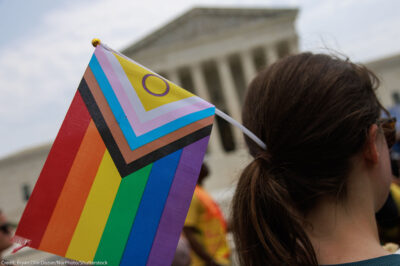As you get ready to celebrate the holidays, we hope you will consider giving the gift of LGBT equality by having three conversations with friends and family members about what it means to be LGBT. that people are much more likely to support equality when they’ve had an opportunity to get to know what it really means for someone to be LGBT. The best way to let others what it’s like is through personal conversations. And no, you don’t have to be LGBT to have these conversations. You can talk about LGBT people you’ve known.

What better time to have these conversations than the holidays? It’s the one time of year when we get to see old friends and extended family members, and most people are usually in a good mood and eager to catch up. To learn more about what to talk about and who to talk to, please check out our . Meanwhile, we realize that it’s not always easy to start these conversations, so we came up with a list of suggestions for sparking them. Sometime before Uncle Albert finishes off his fourth glass of eggnog, try working one of these topics into the conversation. But remember, these are just conversation starters. To get people to change their hearts and minds, you need to make it personal. That means talking about LGBT relationships and what it’s like to be shut out of family protections for our relationships. It means letting people know what its like to be picked on and harassed as a kid. And it means talking about how being LGBT isn’t all that different from everyone else.
Take advantage of the following hot topics to share with others what it’s like to be LGBT:
The Economy – Let’s face it, someone is going to bring it up. While it looks as though the worst of it is hopefully behind us, we’re still reeling from the worst economic downfall in decades with an unemployment rate at over 10%. Why not let people know that it’s perfectly acceptable to fire someone in 29 states for being gay and in 37 for being transgender? Most people will be a little surprised by this statistic, giving you the perfect opportunity to take the conversation in a more personal direction.
The Healthcare Debate -- This one is a little bit trickier. If your family and friends are in the middle of a big argument, it’s probably not the best time to try to have a personal conversation. But, if everyone pretty much shares the same point of view, you’ve got a perfect opportunity to remind people that same-sex couples are often shut out of family health insurance plans because many employers don’t recognize same-sex couples. And if you’re in a relationship – gay or straight – talk about what it would be like to have to worry that you couldn’t visit your spouse or partner in the hospital. Don’t stop with health care, share other ways your life is different (or the same) because you are LGBT.
Terrible Treatment of LGBT People in Other Countries – The Ugandan legislature is poised to vote on a bill that would impose the death penalty on same-sex intimacy, while friends and family members would face up to seven years in jail for failing to report them to authorities. Last year in Iraq there were many reports of gay people being hunted down and brutally murdered, often at the behest of their own family members. It shouldn’t be hard to take this conversation into a more personal direction.
Popular Culture – There is no question that the proliferation of LGBT people and themes in popular culture has helped tremendously in building support for LGBT equality. Here are just a few examples from the past few months that should help you start talking. The gay character Kurt on Glee had a great storyline about coming out to his working class father who struggles but ultimately accepts his son. On Modern Family, the gay couple, Cameron and Mitchell, face the same joys and anxieties that all new parents face after adopting a daughter. Ellen DeGeneres and her longtime partner Portia de Rossi tied the knot to much fanfare only to see the voters pass Proposition 8 a few months later. If your friends and family are the type to read Us, Star or the National Enquirer, there’s always Lady GaGa and Adam Lambert. Just remember, ultimately the conversation has to turn personal and that means sharing information about your struggles as an LGBT person.


